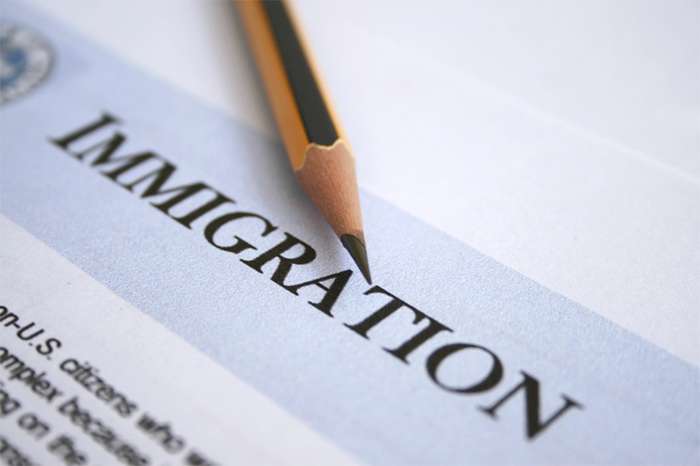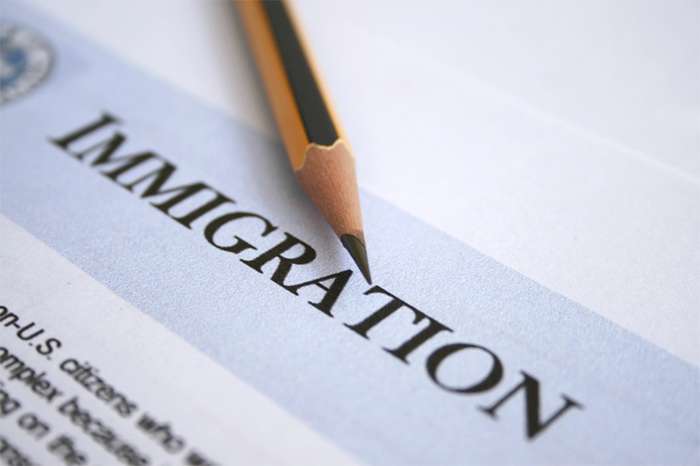You must know the possibility of who qualifies for an immigration waiver, since there is a new rule in the United States related to some of the undocumented immigrants, the children and spouses, single and permanent legal residents and even for citizens, so everything you will read below will intensify you, do not miss it!
Who qualifies for an immigration waiver and what is it for?
First of all you must know who qualifies for an immigration waiver And if you qualify, what use is that forgiveness? Well, a pardon in the United States serves so that you can leave the United States without the law of punishment being applied to you.
You know what forgiveness is, but who can ask for forgiveness?
- Under the new rule, family members of legal residents and parents, spouses and unmarried children of citizens can ask for a pardon.
- If you ask for a 601-A waiver, you must show that your parents or spouse who are permanent residents or a U.S. citizen would suffer major hardships if the exemption is not granted.
- You can qualify to apply for the 601-A pardon if your relative can demonstrate extreme suffering, but even if they can demonstrate it, it is not a guarantee that they will be able to win the consular process and therefore it is not a guarantee that they will be able to receive an immigrant visa.
In any case, each case is individual and is reviewed in particular to be able to know the real merits before the 601-A pardon is requested.
Who qualifies for a provisional immigration waiver
- You can qualify for a provisional pardon if you want to leave the United States while you go to a consular interview so that your history is reviewed, they will have to take biometric tests, they will have to investigate you and then a consular employee will be the person who will indicate if you are admissible or inadmissible to return to the United States whether or not you did wrongdoing.
- In any case, the 601-A waiver can be approved but you must comply with immigration laws that may indicate that you are not admissible to return to the United States.
- A clear example in which you will not be admissible is when it is detected that if you started any other immigration procedure, if you violated immigration law several times or if illegal entry to the United States is detected.
New law of forgiveness 2016
The new 2016 forgiveness law indicates who qualifies for an immigration waiver, that is, who are the beneficiaries not to comply with the law of punishment, then it indicates that they eliminate the law of punishment:
- Parents who are undocumented of legal residents or of
- Children who are undocumented of legal residents or citizens.
- Undocumented spouses of legal residents or citizens.
- The children and spouses of single legal residents with permanent residence.
Who qualifies for an immigration waiver and who does not qualify
You already know who qualifies for an immigration waiver, but now you should know in cases where you do not qualify for an immigration waiver:
- If you were removed from the United States, you will not qualify for an immigration waiver.
- If you returned to the United States with inadmissible status, you will also not qualify for immigration waivers.
- If you were expelled from the United States and the Immigration and Customs Enforcement Agency detected your re-entry after you were expelled.
- If you falsified, committed fraud, defacement, misrepresentation or a false description, if you misrepresented to enter the United States territory or to obtain a visa or to obtain an immigration benefit.
- If you concealed that you had a felony conviction.
- If you used false documentation to obtain immigration benefits.
- If you have a criminal past for violation of drug laws, prostitution or committed a serious crime.
- If you falsely claimed to be a US citizen for the purpose of obtaining a benefit, unless your parents are US citizens and have lived and remained in the United States before you reached the age of 16 and in good faith you have believed that you were a US citizen .
- If you are a member of a gang you will be considered inadmissible for reasons of national security.
- If you were summoned in immigration court for having an open deportation case and you did not attend and from that date of summons it has not been 5 years since you are not in the United States, but if 5 years have already passed you can request a pardon.
- If you committed a fraud like getting married just to get the papers.
- If your request for asylum in the United States was considered frivolous.
Who qualifies for an immigration waiver and the extreme hardship categories
The USCIS, United States Immigration Office is the entity that is in charge of interpreting the extreme difficulties to choose the people who qualify for immigration forgiveness.
In this way it determines strong and weak categories from levels that indicate whether or not you can qualify for forgiveness, for example:
- Level 1 is the one that indicates that a relative is suffering from an important medical problem and therefore it is impossible for him to travel to the foreign country with the security that corresponds to him and therefore it is necessary for the foreign person to remain in the United States in order to your family member receives care.
It is also level 1 when the foreign country is in the middle of a war.
- Level 2 indicates that the family member is suffering from a serious medical problem, for which he cannot move to a foreign country and needs help from abroad or when the foreign country is about to face a political upheaval.
- Level 3 indicates that the family member is suffering from a significant condition which prevents them from moving outside the country or when the foreign country is experiencing economic problems of extreme poverty.
- Level 4 indicates that the relative cannot pay debt if he or she moves abroad or when that relative’s parents are elderly.


